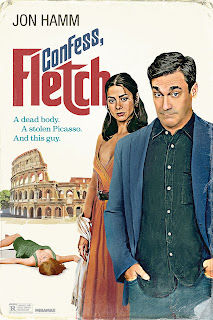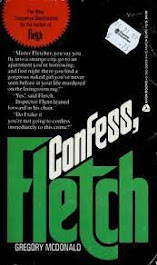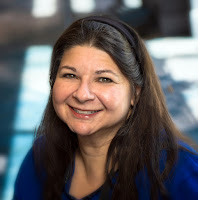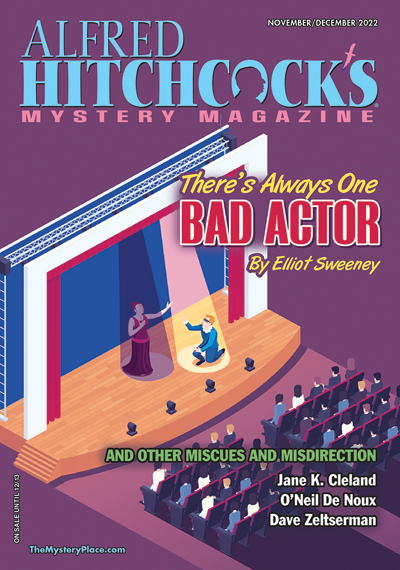Dear SleuthSayer faithful–it's that time of year again, with Veterans Day falling on a Friday, and just days after a mid-term election whose high voter turn-out (both red AND blue voters) warmed the cockles of my heart. Yep, you heard me: I don't care WHO you voted for, as much as that you actually DID vote. Because democracy is best when it's PARTICIPATORY.
In 2015 a former student reached out to me and asked that I serve as that year's featured speaker for her high school's Veteran's Day assembly. I have posted below the speech I gave on that day. I hope you will join me in thanking all of our veterans, living and dead, for their service to our country, and to the world.
I know I promised you a conclusion to the story of the Queen's Poisoner begun last go-round in the rotation, but with me being a veteran and an historian, and tomorrow being Veterans' Day–one of the most historical of American holidays–I'm going to beg your indulgence and repost the speech below, given at a local high school several years. I feel the sentiments expressed below if anything, more strongly than I did when I originally gave this speech.
I love this country. I am honored and humbled to have served her. I wish you all the best on this, a day of remembrance.
***************
Hello, and thank you for that warm welcome. While I’m at it, I’d like to thank Dr. _______, the staff, and the student body here at __________ High School for inviting me to speak to you today, on this occasion where we take time to honor our country’s veterans. My name is Brian Thornton, and I am a veteran. It has been my privilege to teach Ancient & Medieval World History at _______ Middle School, here in the ______ School District, for the past ________ years.
But before I began my career as a teacher, before my time in college training to be a teacher, before I moved to the Seattle area, before I got married and started a family, I lived a very different life, in very different locales, doing a very different job.
But more on that in a moment.
Now, I’m an historian, so I’d like to start off with a few words about the date on which we celebrate Veterans’ Day. It was only after my time in the military that I understood the significance of November 11th as the date we choose to honor our veterans. Far from being some random date on the calendar, November 11th was chosen for a very specific reason. Originally called “Armistice Day,” it marks the anniversary of the signing of the cease-fire agreement that effectively ended the First World War. Dubbed by turns “The Great War,” and “The War to End All Wars,”- this conflict resulted in the deaths of over 16 million people- only 9 million of them combatants- during its four years (1914-1918).
The First World War redrew national boundaries, toppled empires, wrecked a continent, and wiped an entire generation from the earth as surely as the swipe of an eraser removes ink from a whiteboard. By 1918 society had been so thoroughly rocked by the havoc this conflict wrought, that many people began to believe that they were witnessing the death throes of society itself- that civilization would literally cease to exist.
So the men who negotiated and signed this armistice (and they were all men. Human beings had yet to awaken to the importance of having the wisdom and experience of women at the table during negotiations like these), believed that with their actions, they were literally saving human civilization from eventual collapse and humanity itself from likely extinction.
And so they arranged for the cease-fire to go into effect on a symbolic date: literally at 11 o’clock in the morning, on the 11th day of the 11th month of the year- hence the phrase “at the 11th hour”- a phrase that we use to this very day, in describing disaster being averted at the “last minute.”
I cannot help but find it fitting that we choose such a date to pause and take note of the contributions made to this country by our veterans. After all, it is the most American of traditions to take a painful memory and to substitute a hopeful one for it.
And to speak of the contributions, the sacrifices, of our veterans, is to speak of hope. Hope is an aspirational emotion, born of a desire for something greater, something better. People motivated by hope can achieve incredible things. America itself was founded on hope. Countless millions have flocked to this country from every corner of the planet, motivated by hope- hope for something bigger, greater, deeper. And they hope to find what they’re seeking in America, a place that the great poet Bruce Springsteen has dubbed “The Land of Hope and Dreams.”
And over the past two-plus centuries our citizen soldiers have answered their country’s call time and again out of a sense of dedication to that country, and to that hope. Such loyalty, such patriotism makes of mere countries the greatest of nations.
And as the service of veterans has helped to transform America, so, too has it had a transformational effect on those who served.
I served as a quartermaster in the United States Navy from 1985 to 1989. A quartermaster’s job is to serve as principal navigator onboard ship, and as an expert cartographer (a “map maker”) on land.
During my time in the navy I visited every continent on the planet, with the exception of Antarctica. I lived and worked with thousands of different people, from a wide variety of ethnic, economic, and geographic backgrounds. I experienced places and cultures and sights and smells and tastes that I never knew existed. It was a far cry from my childhood growing up in Eastern Washington.
I cannot overstate the effect that serving my country during those four years had on me. My worldview was radically changed as a result of that experience, and while it was not an easy journey, I cannot stress enough how important my military service has been to me in the years since my discharge in 1989.
The military taught me so much. Patience, mostly. And more patience. And then….still more. Those of you with a veteran in your family, ask them about the phrase “Hurry up, and wait.” See what reaction you get.
In the navy I learned to get along with people with whom I had nothing in common, other than the shared experience of serving our country. The navy brought me into close contact with people I might never otherwise have gotten to know. One of the life skills I value most is the ability to work well with people you may not like very much. Another is the ability to get past initial differences and find things to admire in others, things you might not have noticed on first acquaintance. The navy taught me how to do both of these things, and so much more.
None of this should have come as much of a surprise to me. You see, when it came to the military, I had a reservoir of previously acquired knowledge to rely upon at home while I was growing up. My father flew Huey gunships in Vietnam. Two uncles served in the navy. One retired from the Coast Guard. My grandfather was a tail-gunner in both B-17s and B-29s, flying bombing sorties over both Germany and Japan during World War II. Much of my childhood was spent listening to stories, not only of battle, but of boredom, “unintelligent” leadership, pranks played, and fast friendships formed.
Once I had served my own hitch, I had my own stories to tell. Tales of bad food, long work days, freezing cold watches stood on piers in faraway places with hard-to-pronounce names. And the exploits of “my buddies,” guys I served with. Guys I’ll never forget, like them, love them, or hate them. My younger brother did his own hitch in the army, serving as crew chief onboard Chinook helicopters. And he in turn brought home his own stories.
I have a lot of veterans in my family, including ones like my cousin, Ronald Quigley, who never lived to tell their stories. You see, my cousin Ronnie died while serving as an artilleryman in Vietnam. You can find his name inscribed with those of the other honored dead from that war on the Vietnam War Memorial in Washington, D.C.
I was three years old when he died. All I have left of him are some jumbled memories from his going-away party when he left for Vietnam.
And yet, my cousin, and those others whose lights were snuffed out too early, who never lived to tell their stories, the ones who, in the words of President Abraham Lincoln, gave “the last, full measure of devotion” to this country, they deserve to be remembered. To be celebrated. To be honored.
And we, as a nation, have an obligation to keep their memory alive, to keep them from becoming just another name on just another war memorial. To help the citizens of this great nation remember the terrible cost incurred every time young people answer their country’s call to arms. To serve with honor, and to be transformed utterly by the experience.
And that leads me to the crux of this speech. Because, once you’ve lived it, once you’ve taken the oath, once you’ve stood the watches, and fought to stay awake, and been afraid, and laughed, and argued, and sweated, and ached, and bled, and loved and cried, all in the service of your country, like it or not, you’ve become a part of something larger than yourself.
A fraternity.
A family.
A group of women and men who have sworn to protect this nation. Who have made its continued existence their personal responsibility.
And it doesn’t change much once your hitch is up. Once you’ve done your bit, you’re a member for life. And for ever afterward.
That’s what being a veteran is.
***************
Coming in two weeks: the conclusion of the tale begun with an eccentric Swedish queen and her court poisoner. See you then!
























